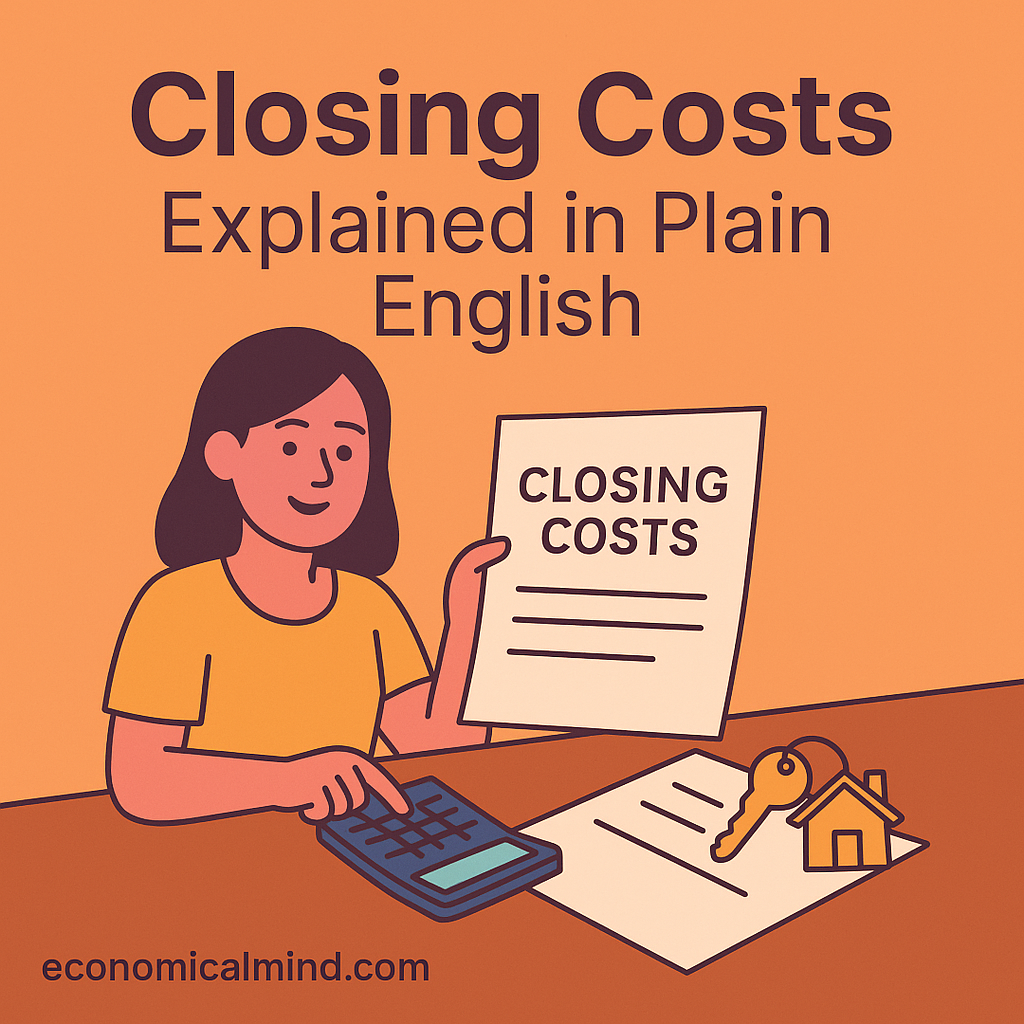
Why Closing Costs Matter
You’ve saved for your down payment, found your dream home, and secured a mortgage — but before you get the keys, there’s one last expense: closing costs.
Closing costs can surprise many first-time buyers because they’re not part of the home’s price — but they’re required to finalize the deal.
In plain English: closing costs are all the fees and services needed to transfer ownership of a home from the seller to you.
Step 1: What Are Closing Costs?
Closing costs are one-time fees paid at the end of the home-buying process, usually during the final signing appointment (“closing”).
They typically range from 2% to 5% of your home’s purchase price.
So, for a $400,000 home, expect around $8,000–$20,000 in total closing costs.
These costs cover everyone who helped complete the sale — your lender, title company, and local government.
Step 2: What’s Included in Closing Costs?
Here’s a breakdown of the most common fees:
1. Loan-Related Fees
- Origination fee: Charged by your lender to process your mortgage (0.5–1% of the loan).
- Credit report fee: Covers pulling your credit history.
- Appraisal fee: Pays for an independent estimate of the home’s value ($400–$800).
- Underwriting fee: For verifying your financial information and approving the loan.
2. Property & Title Fees
- Title search: Ensures the property has no ownership disputes.
- Title insurance: Protects you and your lender against future title issues.
- Recording fee: Paid to the local government to record the sale.
3. Prepaid Costs
- Property taxes: You may prepay a portion of your annual taxes.
- Homeowners insurance: Lenders usually require one year of coverage upfront.
- Interest: Covers the interest from your closing date to your first mortgage payment.
4. Other Possible Costs
- Attorney fees (in some states).
- HOA fees or transfer fees.
- Home inspection (if not already paid).
Not all fees apply to every transaction, but together they form your total closing costs.
Step 3: Who Pays Closing Costs?
Both buyers and sellers have closing costs, but typically:
- Buyers pay the majority (loan, appraisal, title, etc.)
- Sellers pay real estate agent commissions and some transfer fees
However, buyers can sometimes negotiate with the seller to cover part of their closing costs — especially in a buyer’s market or when using certain loan programs.
Step 4: When Do You Pay Closing Costs?
You pay your closing costs at the closing appointment, right before you get your keys.
You’ll receive two key documents:
- Loan Estimate (LE): A breakdown of estimated costs early in the process.
- Closing Disclosure (CD): The final, exact numbers provided 3 days before closing.
Always review the Closing Disclosure carefully — compare it to your original Loan Estimate and ask questions about any differences.
Step 5: How to Lower Your Closing Costs
Good news — you can reduce your closing costs with a few smart moves:
- Shop around for lenders: Fees vary, and even small rate differences matter.
- Ask the seller to contribute: Especially if your offer is strong.
- Use a no-closing-cost mortgage: Some lenders roll fees into your loan balance.
- Negotiate with service providers: You can often choose your own title or insurance company.
Even trimming 0.5% off your total fees can save you thousands.
Step 6: Be Prepared for Escrow and Reserves
Your lender may require an escrow account to cover future property taxes and insurance.
At closing, you’ll make an initial deposit (often 2–3 months’ worth).
This isn’t an extra fee — it’s prepaid money held for upcoming bills, ensuring they’re paid on time.
Step 7: Plan Ahead to Avoid Surprises
Before making an offer on a home, use an online closing cost calculator (like those from Bankrate or NerdWallet) to estimate expenses.
Budget an extra 3–5% of your home price for safety.
That way, you’ll have enough saved not just for your down payment, but for the day you actually get the keys.
Final Thoughts
Closing costs might seem complicated, but once you understand what they are, they’re entirely manageable.
Think of them as the final step in buying your home — the price of sealing the deal.
By budgeting early, asking questions, and comparing lenders, you can close with confidence — and no last-minute financial surprises.
